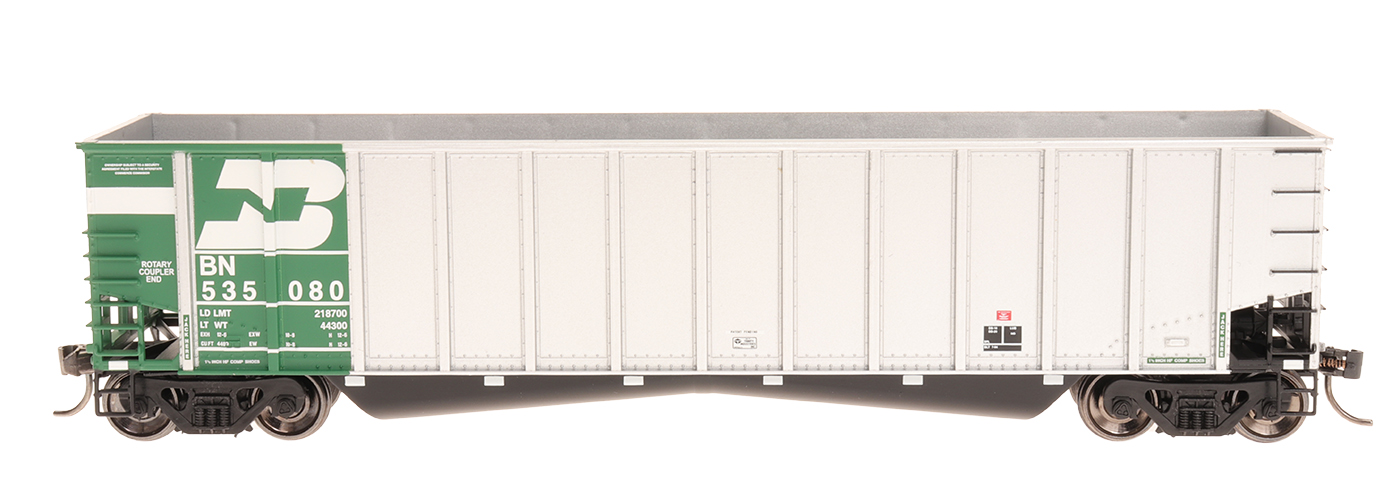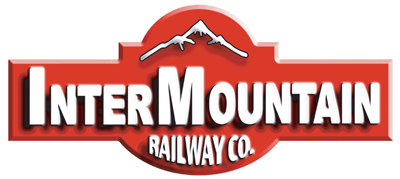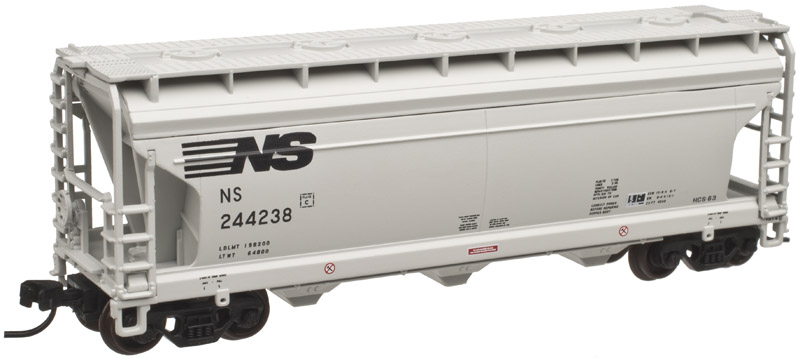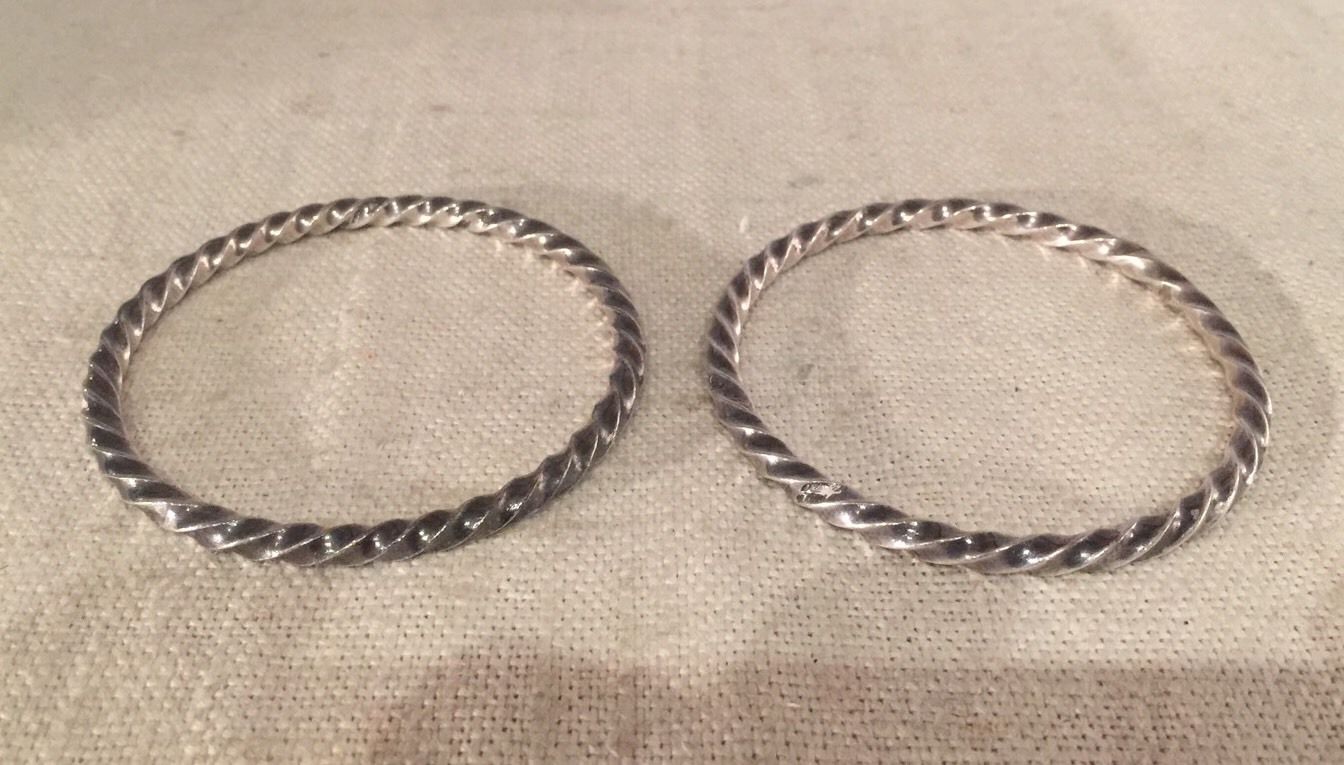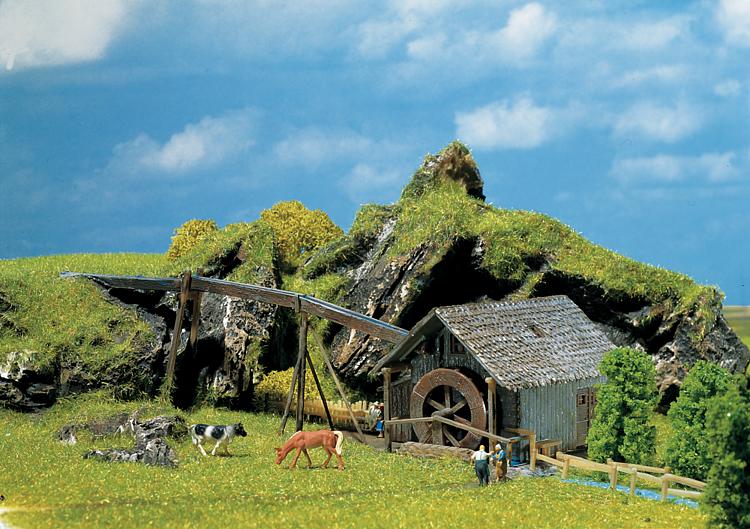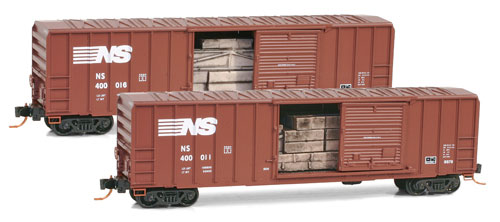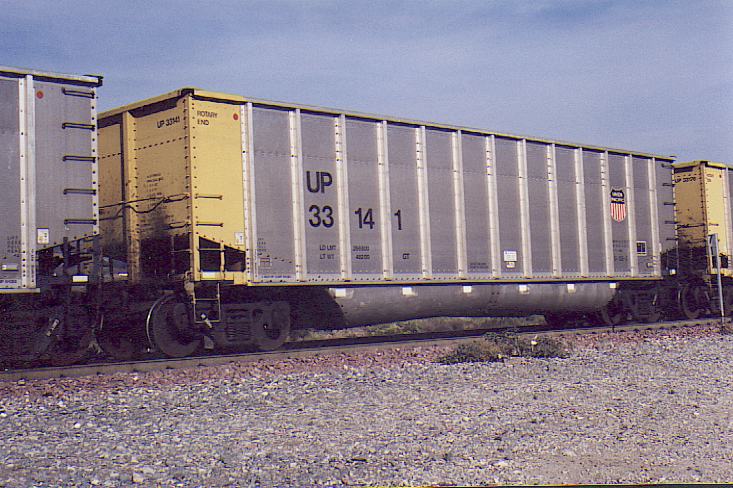Specific Item Information:
Value Line by InterMountain Trinity Aluminator® Coal Gondolas Features: Sharp Painting and Lettering, Prototype Acurate Paint Schemes, Operating Couplers and InterMountain Metal Wheelsets.
A01: 534973, 534996, 535002, 535037, 535042, 535071
Value Line by InterMountain Trinity Aluminator® Coal Gondolas Features: Sharp Painting and Lettering, Prototype Acurate Paint Schemes, Operating Couplers and InterMountain Metal Wheelsets.
A01: 534973, 534996, 535002, 535037, 535042, 535071
Model Information: These models come with optional, user-installed weights and internal bracing.
Prototype History: There have been a number of designs of coal-hauling gondolas for todays operations. Most of the major builders have offered aluminum-bodied coal gons at one point or another. Bethlehem Steel Car made a significant introduction with its Bethgon design. This design continues with Johnstown America today. The basic design uses two longitudinal tubs between the trucks - thus adding additional cubic-foot capacity with a lower center of gravity.
In 1992, Trinity Industries introduced a similar design and called it the Aluminator. Six demonstrators were built and placed under Trinity Industries Leasing Company reporting marks (TIMX 1001-1006). This initial design was rated at a 4,400 cubic-foot capacity. Most new-built coal cars (hoppers and gondolas) are built to a standardized 53' 1" outside length. The Trinity Aluminator is no exception. The 4400 design has a 12' 7" extreme height (11' 6" inside height). What made the Aluminator unique was the way the bottom of the tubs slope down ward from the center to the ends (the Bethlehem/Johnstown design had straight bottom tubs). The body has 13 side posts each with an alternating rivet pattern. There are three internal cross braces (at the 4th, 7th and 10th side posts). Trinity's aluminum rotary dump gondola features twin longitudinal tubs located on either side of the steel center sill.
In 1992, Trinity Industries introduced a similar design and called it the Aluminator. Six demonstrators were built and placed under Trinity Industries Leasing Company reporting marks (TIMX 1001-1006). This initial design was rated at a 4,400 cubic-foot capacity. Most new-built coal cars (hoppers and gondolas) are built to a standardized 53' 1" outside length. The Trinity Aluminator is no exception. The 4400 design has a 12' 7" extreme height (11' 6" inside height). What made the Aluminator unique was the way the bottom of the tubs slope down ward from the center to the ends (the Bethlehem/Johnstown design had straight bottom tubs). The body has 13 side posts each with an alternating rivet pattern. There are three internal cross braces (at the 4th, 7th and 10th side posts). Trinity's aluminum rotary dump gondola features twin longitudinal tubs located on either side of the steel center sill.
Road Name History: 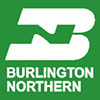 The Burlington Northern Railroad (reporting mark BN) was a United States railroad. It was a product of a March 2, 1970, merger of four major railroads - the Great Northern Railway, Northern Pacific Railway, Spokane, Portland and Seattle Railway and the Chicago, Burlington and Quincy Railroad - as well as a few small jointly owned subsidiaries owned by the four.
The Burlington Northern Railroad (reporting mark BN) was a United States railroad. It was a product of a March 2, 1970, merger of four major railroads - the Great Northern Railway, Northern Pacific Railway, Spokane, Portland and Seattle Railway and the Chicago, Burlington and Quincy Railroad - as well as a few small jointly owned subsidiaries owned by the four.
Burlington Northern operated between 1970 and 1996.
Its historical lineage begins in the earliest days of railroading with the chartering in 1848 of the Chicago and Aurora Railroad, a direct ancestor line of the Chicago, Burlington and Quincy Railroad, which lends Burlington to the names of various merger-produced successors.
Burlington Northern purchased the Atchison, Topeka and Santa Fe Railway on December 31, 1996 to form the Burlington Northern and Santa Fe Railway (later renamed BNSF Railway), which was owned by the Burlington Northern Santa Fe Corporation.*
Read more on Wikipedia.

Burlington Northern operated between 1970 and 1996.
Its historical lineage begins in the earliest days of railroading with the chartering in 1848 of the Chicago and Aurora Railroad, a direct ancestor line of the Chicago, Burlington and Quincy Railroad, which lends Burlington to the names of various merger-produced successors.
Burlington Northern purchased the Atchison, Topeka and Santa Fe Railway on December 31, 1996 to form the Burlington Northern and Santa Fe Railway (later renamed BNSF Railway), which was owned by the Burlington Northern Santa Fe Corporation.*
Read more on Wikipedia.
Brand/Importer Information: InterMountain was founded in 1985 by Fred Brummet. They got started in the model railroad business by producing O-Scale model kits. They got started in the N Scale business almost a decade later when in 1994 they introduced the 40-23 reefer car in kit form. Later, in 1998, they started producing RTR (Ready-to-Run) models. By the early 2000s, InterMountain phased out kit production in favor of the RTR models.
The InterMountain Railway company is located at 1224 Boston Ave in Longmont, CO. They are a manufacturer of HO, N and Z scale model trains. They have produced kits as well as RTR (Ready-To-Run) models. Their N Scale products include locomotives as well as rolling stock. Their rolling stock lineup includes Boxcars, Hoppers, Tank Cars, Reefers, Gondolas, Stock Cars and Flatcars.
Their locomotive releases have primarily been diesel units, with the one major exception being their series of AC-12 Cab Forward steam locos. Their diesel lineup includes F3's, F7's, F9's, SD40's, SD45's and FT units. They are known for quality and detail. They also release their rolling stock in larger varieties of road numbers than most of the other manufacturers.
The InterMountain Railway company is located at 1224 Boston Ave in Longmont, CO. They are a manufacturer of HO, N and Z scale model trains. They have produced kits as well as RTR (Ready-To-Run) models. Their N Scale products include locomotives as well as rolling stock. Their rolling stock lineup includes Boxcars, Hoppers, Tank Cars, Reefers, Gondolas, Stock Cars and Flatcars.
Their locomotive releases have primarily been diesel units, with the one major exception being their series of AC-12 Cab Forward steam locos. Their diesel lineup includes F3's, F7's, F9's, SD40's, SD45's and FT units. They are known for quality and detail. They also release their rolling stock in larger varieties of road numbers than most of the other manufacturers.
Item created by: Powderman on 2018-11-25 15:38:20. Last edited by CNW400 on 2020-09-15 19:08:00
If you see errors or missing data in this entry, please feel free to log in and edit it. Anyone with a Gmail account can log in instantly.
If you see errors or missing data in this entry, please feel free to log in and edit it. Anyone with a Gmail account can log in instantly.


